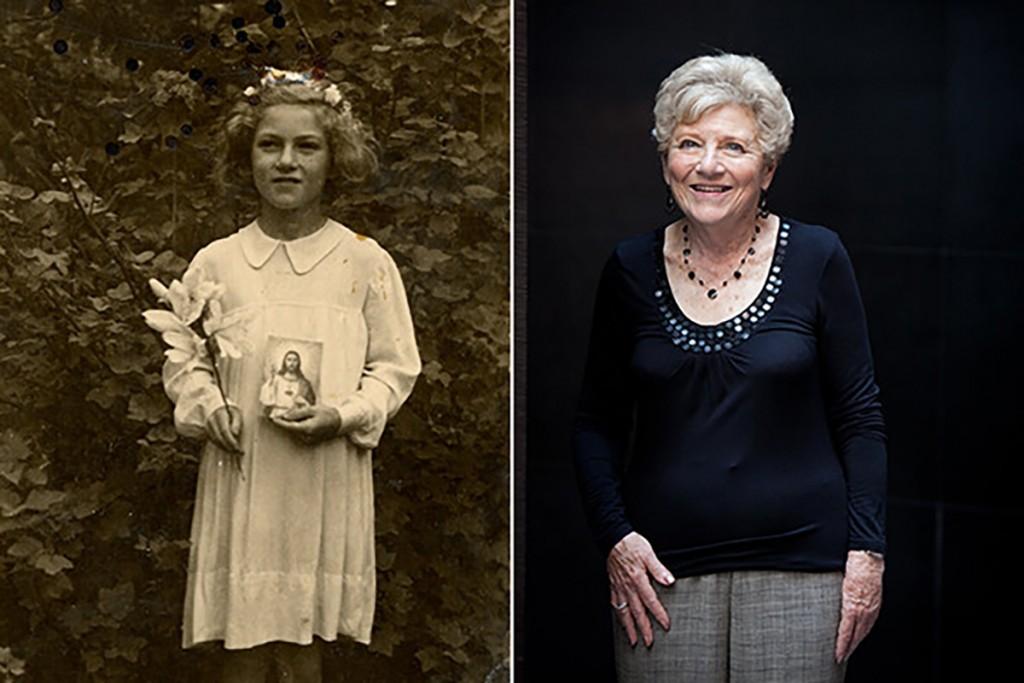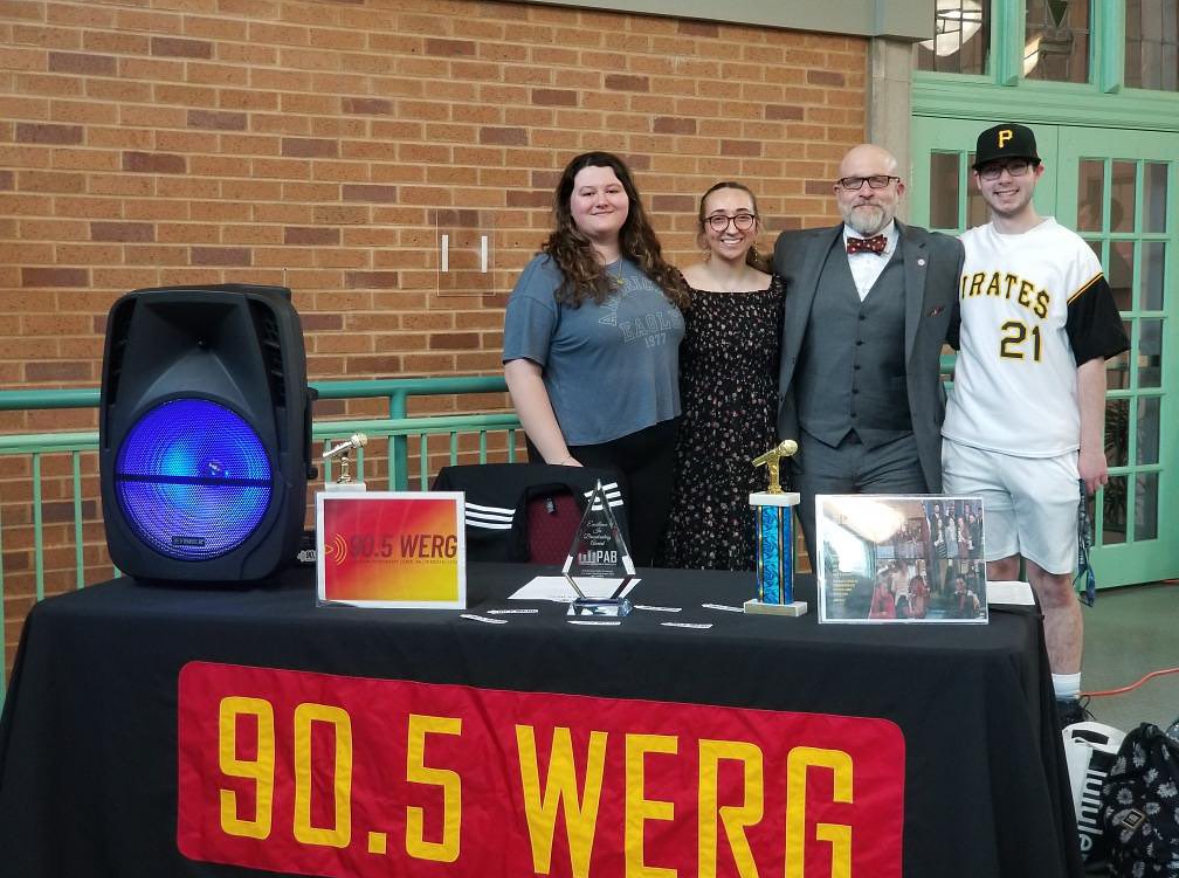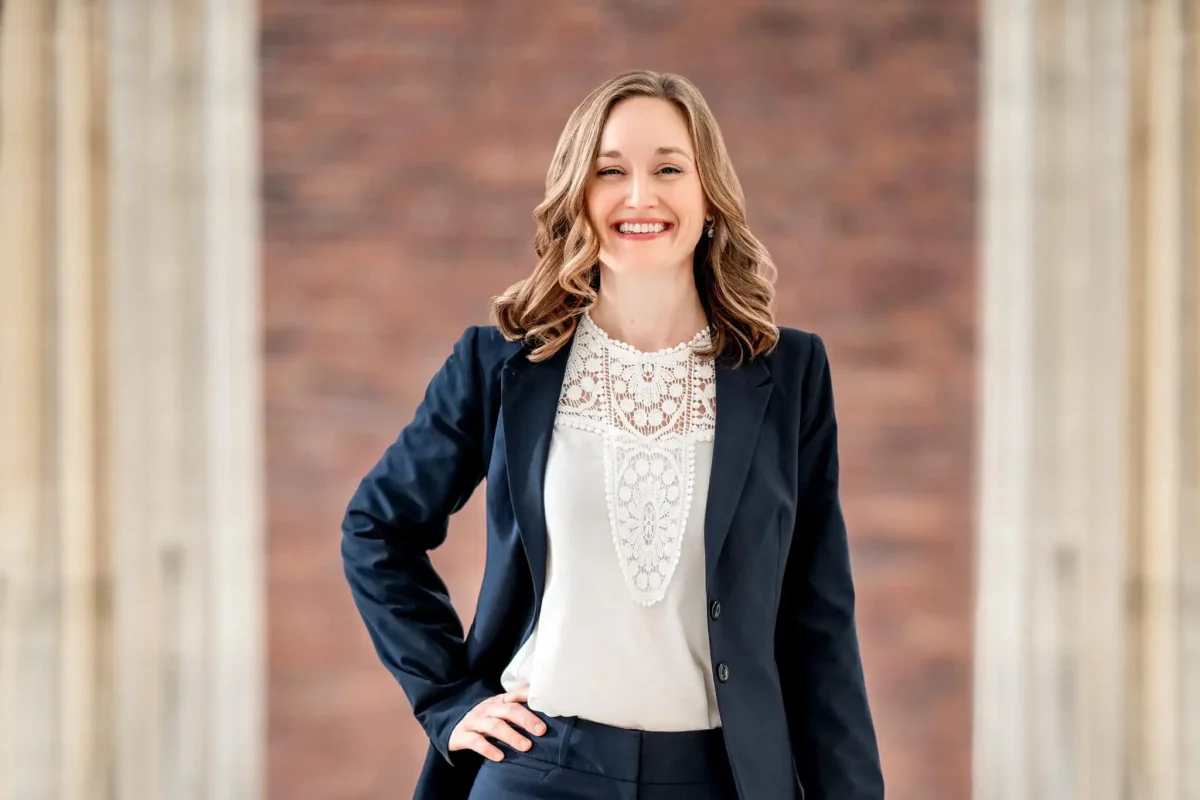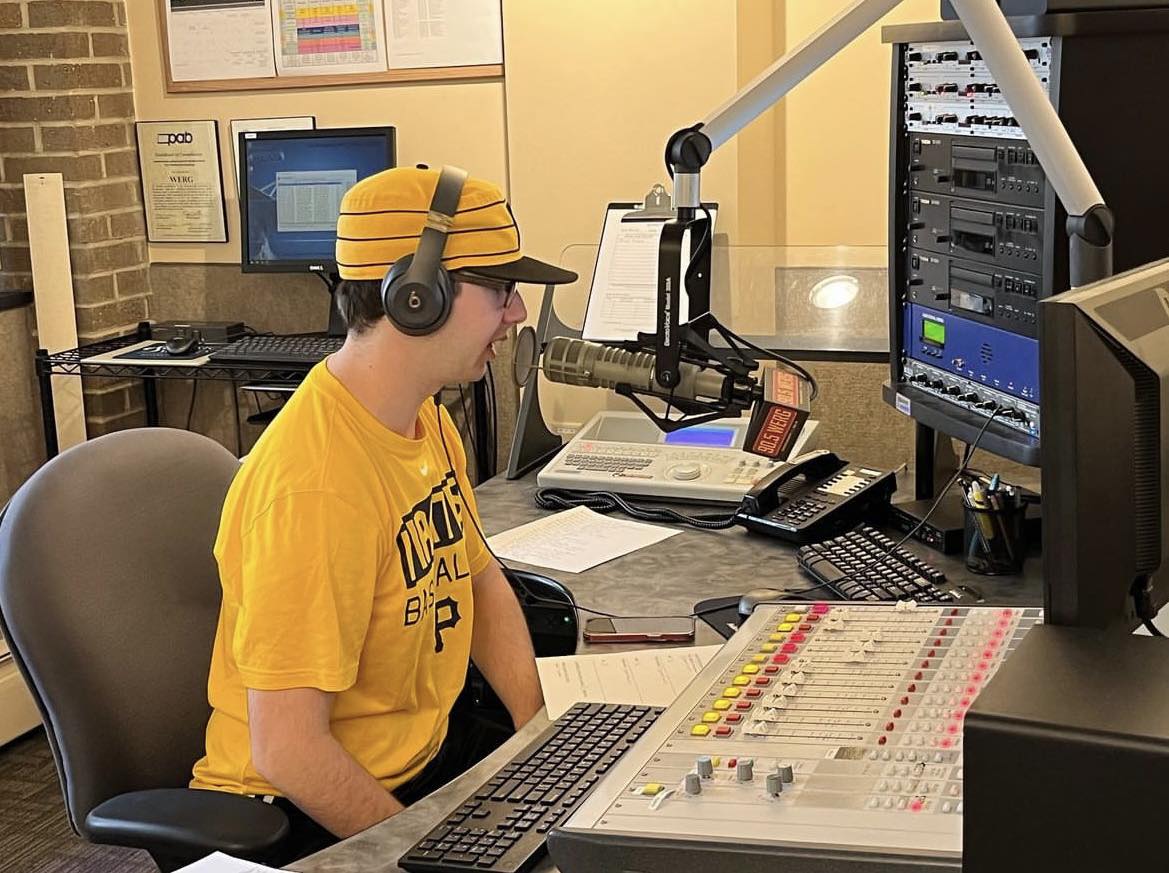As part of the Deadly Medicine lecture series, Gannon University hosted guest speaker and Holocaust survivor, Halina (Litman) Peabody.
More than 300 students, faculty and community members gathered in the Yehl Alumni Ballroom on Oct. 8 to hear the trials and tribulations of Peabody’s life story. Seeing how Peabody was a child during the Holocaust, a majority of the story she shared pertained to her parents and how they saved her life.
Peabody was born on Dec. 12, 1932, to a liberal Jewish family in Krakow, Poland. Her family consisted of her father Izak, mother Olga and baby sister Ewa.
Now 83 years of age, Peabody was 7 years old when the Soviet Union invaded her hometown in Zaleszczyki, Poland. Her father crossed over the open border to Romania to avoid the Soviet Army. When attempting to return to his family, Soviet officials captured him and accused him of being a spy. He was sentenced to 20 years of hard labor and deported to Siberia.
With the German invasion of the Soviet Union in 1941, Zaleszczyki was conquered by Germany and the Peabody family lost contact with their father. At this time, Jewish families in Zaleszczyki were being moved to an area that eventually became a Jewish ghetto. Although she was a young child at the time, Peabody recalls remembering the significance of the situation.
“There was nowhere to run,” Peabody said. “Nowhere to go.”
Peabody’s mother realized the seriousness of her family’s arrangement and decided to take control by buying false documents that identified the family as non-Jewish. With these documents, she and her daughters were able to live as Catholics in Jaroslaw, Poland with a woman who took in boarders. Olga found work in a German military kitchen, which allowed the family to obtain German identification cards.
“My mother would have done anything to keep us safe,” Peabody said.
Shortly before Jaroslaw was liberated by the Soviets, a bomb fell on the lodge where the family was staying and Peabody’s hand was injured. Peabody spent two months in the hospital recovering from her injury.
Peabody’s mother was always concerned for her health, despite the fact that she herself was unknowingly battling breast cancer at the time.
In July of 1944, Jaroslaw was liberated and Izak was able to communicate to the family that he had escaped from prison and was living in Palestine with his sister. The family was reunited and settled in London,.
In 1956, Peabody’s mother passed away due to her breast cancer, which she battled for 10 years.
Peabody said she owes everything to her mother.
“She is the reason I am alive,” Peabody said.
In order to cope with the traumatic experience of the Holocaust, Peabody took up table tennis as a hobby.
She represented England in the 1953 and 1957 Maccabiah Games in Israel. During her visit in Israel, she felt at home with her Judaism and decided to stay and eventually met her husband, who worked at the American Embassy.
Peabody came to the U.S. in 1968 with her husband, and she became involved with the United States Holocaust Museum in Washington D.C.
Although reluctant at first, Peabody agreed to honor her mother and share her story.
“I’m very glad to share this story, because as we get older, it’s so important to share our stories because it’s an eyewitness account,” Peabody said.
Many other students said they were equally as glad that Peabody shared her story at Gannon. Freshman pre-vet student Arriane Schetter said her confidence and bravery is something a lot of women don’t show at times.
“Listening to her speak really made me feel a part of her story and it showed me a way of life I want to live by,” Schetter said.
Jeffrey Bloodworth, Ph.D., an associate professor of history, added that he was extremely pleased with the students’ turnout and their keen interest in Peabody’s story.
“For those who believe that students don’t care about history or matters beyond Madden ‘16 or the Kardashians, the event shows the opposite,” Bloodworth said.
“If you bring a speaker to campus whose story or experience actually interests students, they will come.”
Peabody’s lecture was not the last event for the Deadly Medicine Lecture series.
There will be an Interfaith Shabbat held at 6:15 p.m. Friday in the Yehl Alumni Ballroom.
OLIVIA BURGER








